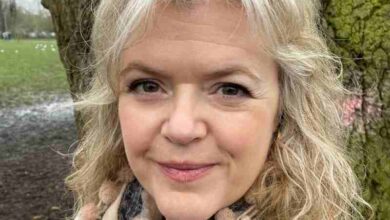Ade Solanke: A Visionary Voice in British-Nigerian Theatre and Storytelling

Ade Solanke stands among the most compelling creative voices of contemporary British theatre and screen. A playwright, screenwriter and lecturer with Nigerian roots, she has carved out a distinctive place in the cultural landscape by celebrating African heritage and illuminating the experiences of the diaspora. Her work combines a deep respect for history with a modern sensibility, offering narratives that challenge stereotypes and give space to untold stories. Far from being a mere chronicler of heritage, Solanke is a dynamic storyteller who captures the tensions and triumphs of multicultural life in the United Kingdom and beyond.
Early Life and Education
Born and raised in London to Nigerian parents, Ade Solanke grew up in an environment where two cultures intersected daily. This dual heritage would become one of the defining influences on her art. She pursued English Literature at the University of Sheffield, laying the foundation for a career steeped in the power of language and narrative. Keen to refine her creative skills, she earned a postgraduate diploma in creative writing from Goldsmiths, University of London. Her thirst for broader experience took her across the Atlantic to the University of Southern California, where she completed a Master of Fine Arts in Screenwriting as a Fulbright Scholar. This combination of British literary training and American cinematic education gave her a rare versatility, enabling her to write with equal fluency for stage and screen.
Early Career and Diverse Experience
Before establishing herself as a playwright, Solanke worked as an arts journalist and as a story analyst for Hollywood studios. These experiences honed her critical eye and gave her a profound understanding of how stories resonate with audiences. She wrote for BBC Radio and contributed to various cultural publications, sharpening her ability to communicate complex ideas in a clear, engaging manner. Her years in journalism and screen analysis taught her to combine rigorous research with creative flair, a skill that would become essential in her later plays.
Spora Stories and a Creative Mission
Recognising the need for authentic African and diaspora voices in British theatre, Ade Solanke founded Spora Stories, a company dedicated to producing original drama for stage and screen. The name “Spora” reflects the diaspora theme central to her work: the scattering of people across continents and the intricate networks of identity that result. Through Spora Stories, she has championed narratives that speak to the experiences of African communities in Britain, giving them visibility and depth while entertaining audiences from all backgrounds.
Breakthrough with Pandora’s Box
Solanke’s debut stage play, Pandora’s Box, premiered in 2012 at the Arcola Theatre in London and quickly established her as a significant new playwright. The play explores the complicated relationship between a British-Nigerian mother and her teenage son during a visit to Lagos. Torn between the freedoms of London and the traditions of Nigeria, the characters navigate questions of identity, belonging and parental responsibility. Pandora’s Box was nominated for Best New Play in the Off West End Awards and won the Best Play category at the Afro-Hollywood Awards. Its success demonstrated that audiences were hungry for stories reflecting the nuanced realities of the diaspora.
Further Stage Successes
Following the acclaim of her first play, Ade Solanke continued to write powerful works for the stage. East End Boys, West End Girls (2015) won a BEFFTA Award for Best Play and examined social tensions and aspirations among young Londoners. Her historical drama The Court Must Have a Queen (2018), commissioned by Historic Royal Palaces, brought to life the story of John Blanke, the black trumpeter in the court of Henry VIII. By uncovering the presence of Africans in Tudor England, Solanke challenged narrow perceptions of British history and highlighted the longstanding multicultural nature of the nation. These plays confirm her range as a dramatist, able to move between contemporary urban settings and meticulously researched historical worlds.
Themes of Identity and Belonging
At the heart of Ade Solanke’s writing lies an exploration of identity and belonging. Her characters often occupy the liminal space between two cultures, grappling with questions of home, heritage and self-definition. Whether set in modern London or sixteenth-century England, her stories address the complexities of living in a society shaped by migration and diversity. She delves into the tension between tradition and modernity, between the expectations of family and the desires of the individual. This focus gives her work a universal resonance, speaking not only to the British-Nigerian experience but to anyone who has navigated the challenges of cultural hybridity.
Screenwriting and Film Work
Solanke’s talents are not confined to the theatre. Her screenwriting includes the film Dazzling Mirage (2014), which deals with the struggles of a young woman living with sickle cell disease. Adapted from a novel, the film raises awareness of an illness that disproportionately affects people of African descent, blending medical insight with a moving personal story. She also created The Family Legacy (2009), a project that explored similar themes and was used in outreach campaigns in the United Kingdom, the United States and West Africa. These works reveal her commitment to storytelling as a means of social impact, using film to inform and inspire as well as entertain.
Academic and Mentoring Role
In addition to her creative achievements, Ade Solanke is a senior lecturer in Creative Writing at the University of Greenwich. In this role she nurtures the next generation of writers, sharing both her technical expertise and her passion for inclusive storytelling. Her mentorship helps emerging voices from diverse backgrounds find the confidence and skill to tell their own stories. She is also a sought-after speaker at literary festivals and cultural events, where she discusses the craft of writing and the importance of representation in the arts.
Awards and Recognition
Solanke’s work has been celebrated with numerous accolades. Pandora’s Box earned nominations and wins across several award platforms, including the Off West End Awards and the Afro-Hollywood Awards. East End Boys, West End Girls received the BEFFTA Award for Best Play. Her academic and professional career has been supported by prestigious fellowships and scholarships such as the Fulbright, Phi Beta Kappa and the Peggy Ramsay Award. These honours testify not only to her creative talent but also to her influence in shaping British theatre and screen culture.
Contribution to British Cultural Life
Ade Solanke’s contribution extends beyond her own productions. By bringing African and diaspora narratives to mainstream attention, she has helped to diversify the stories told on British stages. Her plays invite audiences to reconsider the nation’s history and the rich variety of its contemporary society. They encourage dialogue about race, heritage and identity, helping to foster a more inclusive cultural conversation. In highlighting figures such as John Blanke or exploring the everyday dilemmas of British-Nigerian families, she reveals how interconnected and multifaceted British identity truly is.
Personal Qualities and Influence
Those who have worked with Solanke often note her keen intellect, her generous mentorship and her unwavering commitment to authenticity. She combines rigorous research with emotional depth, ensuring that her characters are both credible and compelling. Her ability to move between journalism, theatre, film and academia reflects a restless creativity and a belief in the power of story to transform understanding. Young writers and performers frequently cite her as an inspiration, recognising in her career a model of how to remain true to one’s cultural roots while reaching a broad audience.
Continuing Projects and Future Vision
Ade Solanke continues to develop new plays and screen projects that explore both contemporary and historical themes. Her work often highlights hidden figures of African heritage in Britain’s past and brings to light experiences that have long been overlooked. By weaving these narratives into the national story, she not only enriches the cultural record but also opens doors for future generations of storytellers. Her forthcoming projects promise to extend her exploration of identity, history and the complexity of human relationships.
Conclusion
Ade Solanke is far more than a playwright or a screenwriter; she is a cultural pioneer whose work bridges continents and centuries. From her breakthrough with Pandora’s Box to her historical revelations in The Court Must Have a Queen, she has expanded the scope of British theatre and screen to include voices and histories too often neglected. Her dedication to mentorship ensures that her influence will continue through the writers she inspires. In celebrating the richness of the British-Nigerian experience and insisting on the visibility of African contributions to British history, Ade Solanke has earned her place as a vital and enduring figure in the landscape of contemporary storytelling.



